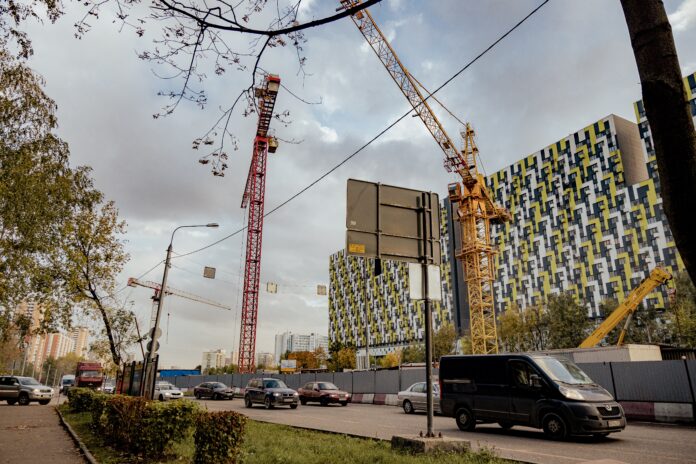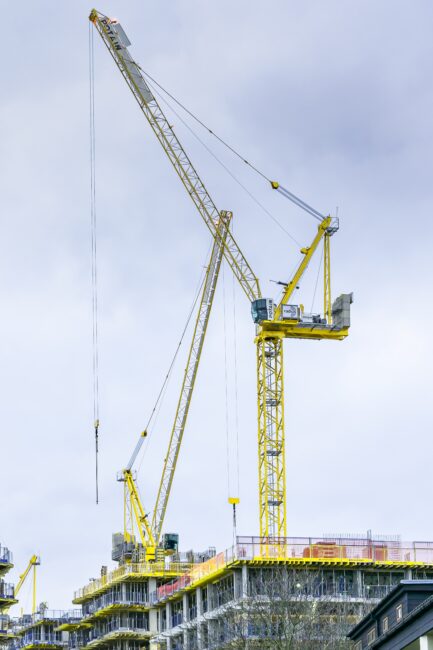If you’re a construction business owner, the choice of industrial lifting equipment can be daunting. There are various types on the market and they serve different purposes. To help you make an informed decision, it pays to understand the ins and outs of industrial lifting equipment and its application in your business.Â
This blog post will provide a comprehensive overview of different types of lifting equipment so that you can choose one that meets your construction needs perfectly–from powered chain hoists for heavy loads to trolleys for ease of transportation. With our guidance, you’ll have all the information needed to select industrial lifting equipment that is ideal for your operational requirements!
Understand the Different Types of Lifting Equipment Available
If you’re in the construction business, it’s important to understand which type of lifting equipment best suits your needs. From overhead cranes for lifting heavy materials to hoists for the precision positioning of goods, the range of available lifting equipment is vast, and choosing the right one for the job can make a huge difference. Consider how much weight you will be lifting, how long you need to stay at a height, how frequently you plan on using the machine, and what environmental conditions it will face when selecting your ideal piece of equipment.Â
Finally, make sure to check safety standards and get proper operator training as appropriate before bringing these powerful machines onsite. Once you understand the different industrial lifting solutions available, it’s time to start considering specific models and features. Powered hoists are ideal for lifting heavy goods and can be operated with either a hand crank or pneumatic/electric motor. Cranes are great for industrial applications where high-capacity loads need to be moved quickly between different locations.
Consider Your Company’s Workload and Needs
As a business owner in the construction industry, it is important to consider your company’s workload and needs when choosing industrial lifting equipment. Whether you intend on using these tools to lift heavy building materials at a worksite or in an industrial setting, you need to make sure that your investment fits with the tasks your business regularly performs. Do some research into what type of lifting equipment is available and suitable for your projects. Having the right tool can make or break a successful job – so make sure you invest wisely and choose something that will best meet the demands of your workforce.
Research the Safety Features
When choosing the right industrial lifting equipment for your construction business, it is important to also research the safety features of the equipment. Having a thorough understanding of any available safety features and how they function in your specific setting will ensure that both your employees and your materials stay safe while you’re operating.Â
Features like slow-lowering devices and emergency stop switches used for increased safety should be researched thoroughly and included in best practices for using the lifting equipment correctly. Ultimately, having knowledge in this area of industrial lifting will help you create an even safer work atmosphere.
Research the Brand and Quality
When selecting industrial lifting equipment for your construction business, researching the brand and quality of the products is key. Ensure that the product is from a reliable and trustworthy manufacturer with a proven track record of providing quality materials. You’ll also want to look out for any certifications or accreditations that offer important insight into how safe and effective the product is – a crucial detail when you’re dealing with heavy machinery. Taking the time to evaluate these details will give you peace of mind, knowing you’ve invested in reliable, Long-lasting equipment that allows your crew to work efficiently and safely.
Get an Estimate on Industrial Lifting Equipment Costs
When it comes to finding the right industrial lifting equipment for your construction business, one of the most important decisions you need to make is what kind of costs are associated with this investment. Fortunately, getting an estimate on industrial lifting equipment costs is a fairly straightforward process – all you need to do is reach out to a reliable supplier and they will be able to provide you with an estimate. In addition to getting cost estimates, be sure to inquire about additional charges that may come with installation and maintenance costs.Â
Doing your homework ahead of time can help ensure that you have the best possible setup for your construction business without breaking the bank.
Maintenance and Storage Considerations
It’s important to consider the maintenance and storage of any industrial lifting equipment when you’re looking to make a purchase; otherwise, it may lead to bigger issues down the line. Properly maintaining your hardware with regular cleaning and inspection can help minimize downtime, while proper storage can prevent damage from rain or other external factors. Make sure your provider offers training in both areas so that employees know the right procedures to follow.
Besides providing training, having easy access to replacement parts can save you time and hassle when something does unexpectedly break down. It’s making these investments up front that will pay off for the long-term success of your construction business.
When choosing industrial lifting equipment for your business, it’s important to consider all of the factors mentioned above. Make sure you understand the different types of lifting equipment available, that your workload and needs have been accounted for, that the safety features are up to par, research the brand name and quality of the product being purchased, reasonable cost estimates have been acquired, and that maintenance, as well as storage, will not be an issue. Doing research ahead of time can help you make an informed decision in order to select the best lifting equipment for your construction business.



















